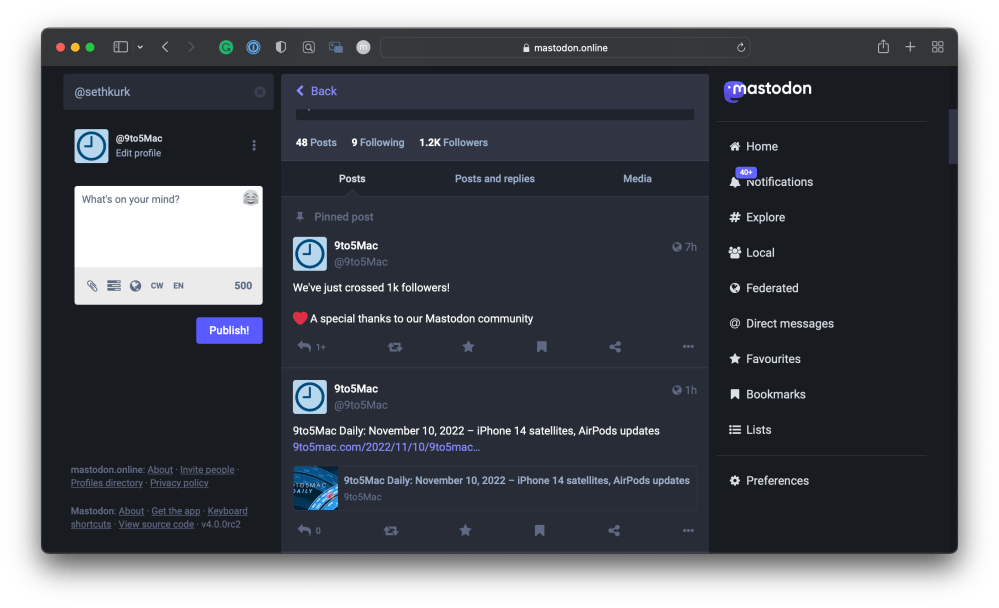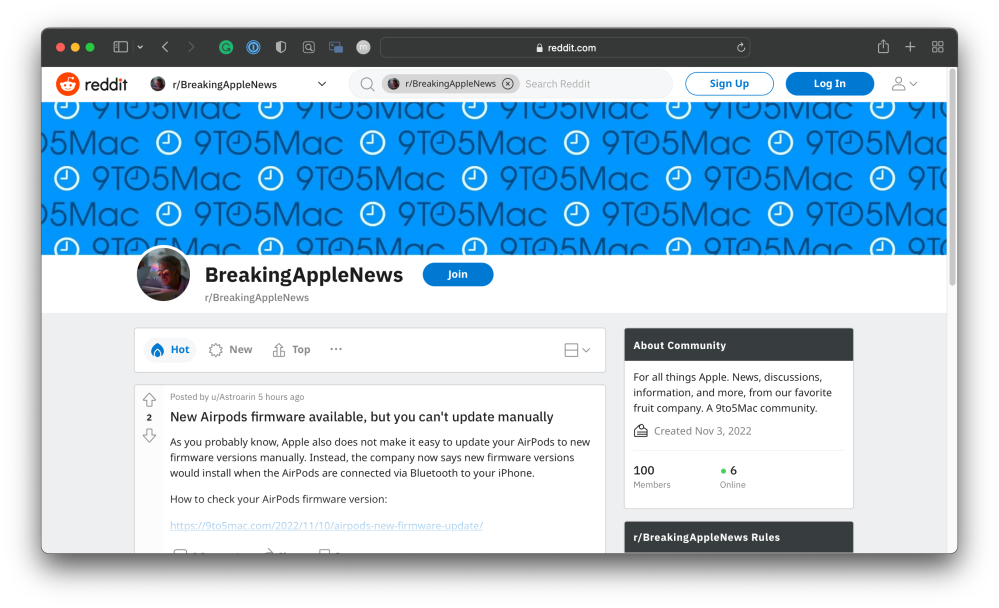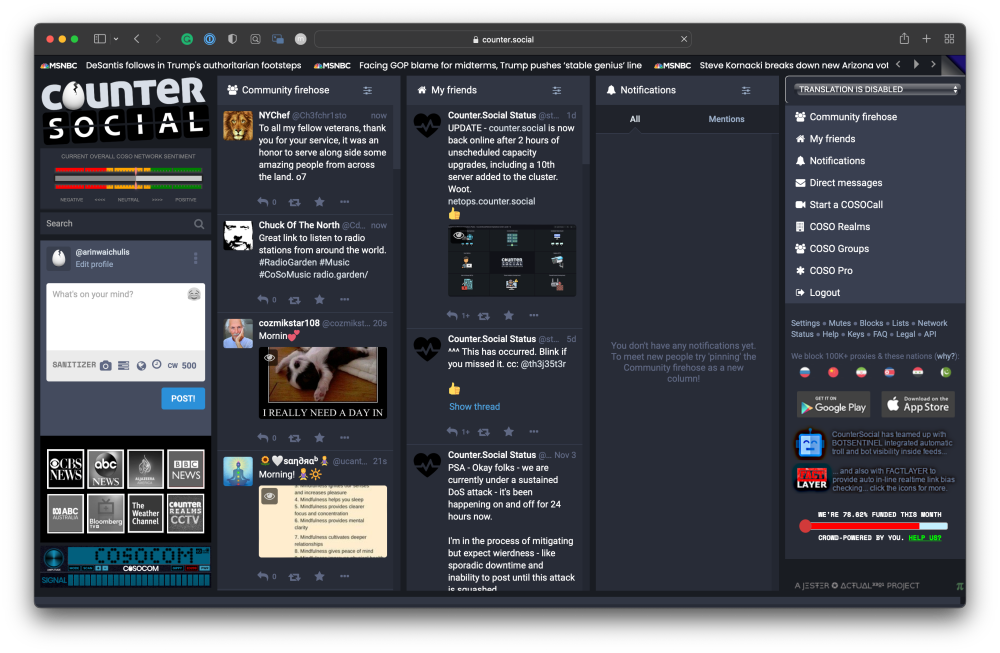
Amidst the layoffs, verification changes, notable executive departures, a fleeting ads business, and the undeniable dumpster fire that is Twitter right now, many users are seeking alternative platforms, and rightfully so. If you’re looking to do the same, you’re probably wondering: Can anything really replace Twitter?
While Twitter has numerous advantages, some of its best aspects can also be found elsewhere. I did some digging and found several compelling alternatives to the social network. Here were some of the best.
Mastodon

This decentralized open-source social networking platform debuted in 2016 and has been picking up steam since Elon Musk officially acquired Twitter in October. It takes a very different approach to the term “social network.” Rather than being a centralized platform (i.e., Facebook, Twitter, Instagram, etc.), it allows users to create, host, and moderate their own communities or “instances.” This leaves many rules and moderation up to the instance host – almost as if you run your own social network.
Mastodon offers a similar layout to 2014 Twitter. It’s a familiar feel that helps not to make the experience too overwhelming if you’re coming from the bird app. That being said, it can be a lot to take in at first, but once you follow some like-minded people, you might find it a great Twitter alternative.
Cohost

While Cohost is still in its beta phase, you don’t need an invitation to join, though if you don’t have one, it’ll make you wait “a day or two” before you can start posting; the site claims it does this to fight against spam. In the meantime, you can still look around. I was approved in about an hour.
Cohost claims to be completely ad-free, and offers a subscription for enhanced features (larger uploads, customization options). In addition, the social network claims it “will never sell your data, sell ads, or sell the company to anyone who might change these policies to make a quick buck.”
Similar to Facebook and Twitter, it offers a vertical feed or similar actions, though instead of being algorithmically driven, posts are always listed in the order they were posted. I also appreciate the ability to have more than one editor for a profile. Overall it very much feels very early internet and community-driven.

Reddit needs no introduction, but it wouldn’t be right to leave it off this list. The popular social news website is somewhere I expect a lot of attention to funnel if Twitter’s mass exodus picks up and continues.
At its core, Reddit is a huge collection of forums, each centered on topics known as subreddits. Subreddits can sometimes be a free-for-all of comments, memes, and rants. Users can upvote or downvote comments and posts, which lets them gain or lose karma, indicating your contribution.
WT.Social

WikiTribue Social or WT.Social claims to be a non-toxic social media platform and a “place where advertisers don’t call the shots. Where your data isn’t packaged up and sold.” It was founded by Wikipedia cofounder, Jimmy Wales, in 2019 as an alternative to traditional sites. Like Wikipedia, WT.Social runs entirely on donations rather than relying on advertising.
It’s structured so that users can join, create, and contribute to “subwikis” in a similar style to Reddit. When using WT.Social, you’ll quickly learn that the site is designed to combat misinformation and share meaningful conversations. Posts require evidence-based news with links and clear sources. Other users and moderators are also able to edit and flag misleading links.
While it’s unlikely that WT.Social will take off to be as big as Twitter or Reddit, it’s an appealing alternative that even Wales himself has admitted: “is a radical, crazy experiment.”
CounterSocial

Right out of the gate, the CounterSocial boasts on its front page that it doesn’t allow trolls, fake news, ads, and even access entirely if you live in “origin points” for bots, such as Russia, Iran, China, and others. Also, weirdly enough, it offers a VR space (which it calls Counter Realms).
If you’ve ever used Tweetdeck, CounterSocial’s column UI will be all too familiar. Users can delete, rearrange, or create additional columns from hashtags, user lists, and topics. Free users can follow, like, reshare, and comment on posts and replies. Pro accounts are also available (for $5/month) with enhanced features, such as changing your profile status and setting posts to expire and “explode.”
Despite some topics being underserved and complete dead zones, I think CounterSocial offers a good experience and should be a Twitter alternative high on your list.
Tumblr
Tumblr has almost been around for as long as Twitter and to has seen its fair share of bad corporate decisions. The Tumblr that exists today still holds true to its long-form blog-style content – unlike Twitter’s 280-character limit – with the ability to share media elements such as photos, videos, and GIFs. Followers can discuss blog entries in the attached notes (a comment section). Users can also share other entries on their own page (similar to a retweet) or even to other services.
Unlike previous sites on this list, Tumblr allows advertising on its platform. Users can circumnavigate it and accumulate additional features by subscribing for $4.99 a month or $39.99 a year.
Others
Top comment by Jonathan Stanley
Will you now be providing suggestions to the 11,000 people that just got fired from Facebook? Would it have been less divisive and targeting to simply say those getting fired from or considering leaving “xxx-tech company”?
Of course, these are just a few of the seemly endless amounts of social media platforms out there today. This list consists of sites I believe are the best Twitter alternatives and have the ability to gobble up flocking users. But ultimately, different types of social networks could also serve as good alternatives.
LinkedIn is mostly known as the business professional’s networking site. Still, much like Twitter, it offers a lot of social-friendly features like a news feed and the ability for users to follow one another and share post updates, photos, videos, polls, etc.
What started as a way for gamers to communicate while playing video games, Discord has grown into a prominent social media site with over 150 million active monthly users. Unlike any of the networks listed above, Discord has no public feed or chat. Instead, it’s structured in independent chat rooms where users can send messages and communicate via voice or video calls – most comparable to Slack.
Have you switched to any of these recently? Do you plan on leaving Twitter, or are you in it until the end? Let us know to comments.
FTC: We use income earning auto affiliate links. More.






Comments